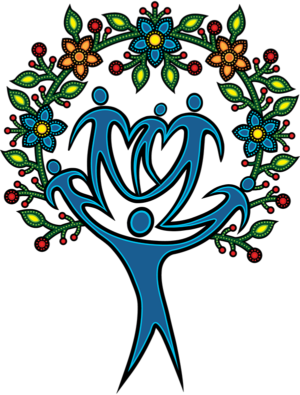Thanks to the fantastic work of PolicyWise and the Population Lab Laboratory at the University of Alberta, we are excited to unveil Mentoring At A Glance: University of Alberta Population Lab Research on Mentoring for 2016.
We encourage you to download and share the full report (Mentoring at a Glance_2016 Alberta Population Lab Survey Final Report – April 2017)
This report provides you insightful, timely, province-wide data about mentorship activities by Alberta adults, their mentorship experience as youth, the influence of mentorship when present in their lives, and their interest in future mentoring. Previously, we have often cited the work of Big Brothers Big Sisters Canada through “The Mentoring Effect” when we have needed Canadian research on mentoring. While it continues to be valuable, we are glad to have current Alberta-specific survey results.
This data will provide a very valuable baseline to the Alberta Mentoring Partnership as we seek to expand and enhance mentoring in Alberta. It likely will also have implications for our mentoring agencies in their program delivery and especially in their recruitment practices.
Some of the key findings were:
- One third of surveyed Alberta Adults reported mentoring youth in 2016; the majority of these did so informally (not within a structured mentoring program). Women and individuals born in Alberta were more likely to be mentors.
- Over half of surveyed Alberta adults were mentored as youth (once again, mostly informally.) Younger respondents are more likely to report past mentorship as are more educated individuals and those in higher income households. Interprovincial migrants are less likely to report mentorship during youth.
- The impact of mentorship on youth resiliency outcomes was rated very high by most individuals who were mentored as youth. Type of mentorship (formal vs informal) did not influence perceived impact of mentorship; however, individuals experiencing shorter mentoring relationships reported lower impact.
- About half of surveyed Alberta adults report at one point wanting a mentor during youth, but not having one available to them. Greater proportions of low-income and low-education individuals report wanting but lacking a mentor during youth, as do those unemployed at the time of the survey and those born outside Canada.
- Two thirds of surveyed Alberta adults would consider mentoring in the near future (next 3 years). 60% of these would consider mentoring at least partially via a formal mentoring program. Women, young people and wealthier, more educated individuals are more likely to express interest in mentoring, as are those who were mentored as youth (particularly those who rate the impact of mentorship highly).
This data provides a demonstrated impact for the impact of mentoring and shows volunteers they can make a meaningful contribution via a quality mentoring program. Considering the statistics about who are most likely to mentor allows your agency to target mentor outreach and recruitment efforts.
- 80% of 18-24 year olds in Alberta wished they had a mentor when they were kids
- 89% of Mentees said mentoring increased their social skills
- 81% of Mentees said mentoring helped them stay in school
- 92% of Mentees said mentoring increased their hope for the future
Follow us on twitter @albertamentors to see how we are using these key messages and statistics from the Population Research Lab to expand and enhance mentoring programs.
Some of the recommended next steps for mentoring research included:
- An investigation into why certain groups are less likely to mentor/be mentored
- A study into Albertans’ understanding of mentorship (what it is/should be, what it isn’t)
- A more targeted look into whether there is in fact equal (real or perceived) impact from formal and informal mentoring formats on youth resiliency and other outcomes
- Collect feedback from current youth, and in particular youth in vulnerable communities
Other ways to use the survey results in your school or mentoring agency could include:
- Grant and funding applications: Use the demographic information to demonstrate the impact of mentoring programs using current, province-wide Alberta data.
- Volunteer discussions: Talk with your volunteer mentors about the impact they are having and why quality mentoring programs make an impact on building community. Ask them about program improvements or tap into their networks for your recruitment campaigns. Current mentors are a top source for identifying other potential mentors.
- Training: Consider implementing some of the questions from the survey into your volunteer training to help your mentors better understand their role and their impact.
- Program Expansion: Consider whether your agency or school is addressing some of the unique needs of certain groups that are less likely to be mentored. How do we continue to build supports and capacity for all young people?
As always, we encourage you to take advantage of the free research, training, and assistance available from the Alberta Mentoring Partnership to expand and enhance your mentoring programs.
For more general mentoring research and information on quality mentoring programs, (albeit often more American in nature) we encourage you to subscribe to the fantastic Chronicle of Evidence Based Mentoring newsletter.
We want to hear from you. Send us your feedback at mentor.support@albertamentors.ca
What does this research mean for your mentoring practice? Which of the results speak to you? How can we continue to work to ensure that those half of Albertans who wanted a mentor but didn’t have access to a mentor can be better served by quality mentoring programs?
